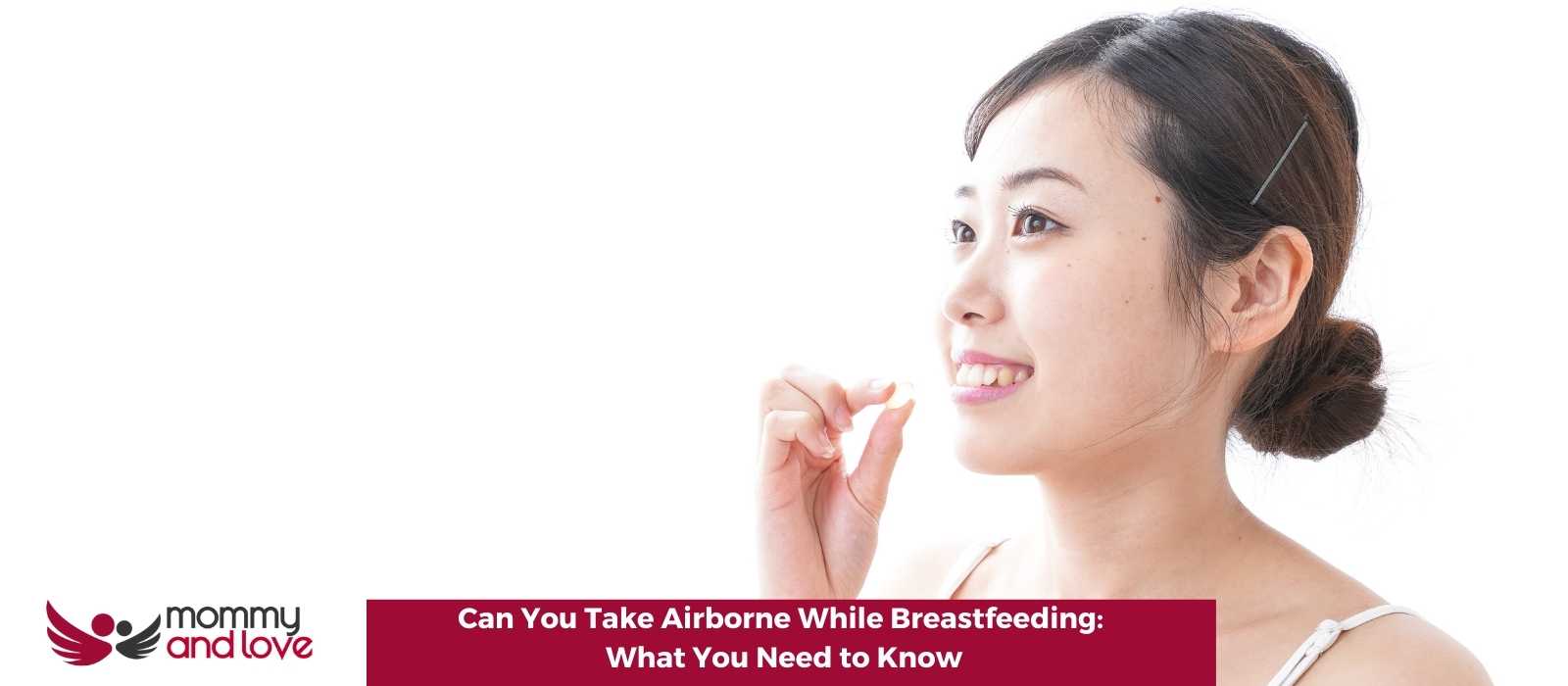If you’re a breastfeeding mom, you may be wondering if it’s safe to take Airborne supplements. After all, you don’t want to do anything that could harm your breastfed baby. In this blog post, we will discuss whether or not it is safe to take Airborne and offer some advice on how to stay healthy during this time.
What Is Airborne?
Airborne immune supplement is a popular over-the-counter mineral and herbal dietary supplement that claims to help boost the immune system. It contains vitamin C, vitamin D, folic acid, vitamin E and magnesium.
The product was originally developed by a school teacher who claimed that she used it to prevent colds.
Airborne vitamin supplements are taken in tablet or effervescent form.
It’s not clear how or if it works in preventing the flu or colds. There have been no clinical trials or research and it has not been approved by the FDA for preventing or treating any medical condition, including the common cold.
Is Airborne Safe While Nursing?

Little research has been done on the safety of taking Airborne.
As a general rule, it’s fine to avoid vitamin supplements, even just a small dose, unless they’re recommended by your healthcare provider.
Some herbs may not be safe, and others can interfere with the medications you may be taking and they can pass through breastmilk.
What Are the Factors to Consider Before Taking Airborne Supplements While Breastfeeding?
Your immune system takes a beating while you’re pregnant, so it’s not surprising that many new mothers start taking Airborne dietary supplement after giving birth.
There are several factors to consider before taking Airborne supplements while nursing, however.
The first is that Airborne is not approved by the U.S. Food and Drug Administration as a treatment for any condition. This does not mean that it will harm your child — it simply means that if it does cause side effects, no one has yet documented them.
Another issue is that Airborne contains many herbal extracts, the efficacy of which has yet to be proved scientifically. In addition, the product contains mega-doses of vitamins A and C. While you may need extra vitamin C while you’re breastfeeding – especially if you’re feeling run-down – an overdose of vitamin A can cause serious health problems in your infant.
What Are the Side Effects of Airborne Supplements in Breastfeeding Mothers?

If it comes in contact with breast milk, anything you ingest or apply to your skin can enter your baby’s body. This is why some medications should be avoided.
An Airborne supplement contains a mix of vitamins, minerals, herbs, and other ingredients. One of the key supplements in Airborne products is zinc gluconate.
Some studies suggest that zinc may interfere with copper absorption and cause anemia in infants. However, research on this is limited, so it’s not possible to say for sure if Airborne increases an infant’s risk for anemia.
Other ingredients in Airborne products include echinacea, ginger root, and Chinese vitex fruit. The evidence on whether these ingredients are safe for babies is limited, but if the herbs are ingested only occasionally (such as a few times a week), they’re probably a low risk for most infants.
Herbs aren’t regulated like medications are — so it’s important to remember that some herbs can have side effects or medicine interactions on intake. For example, echinacea has been shown to decrease the effectiveness of certain drugs. It also may increase the risk of bleeding when taken with blood-thinning drugs such as warfarin (Coumadin).
What Are the Dietary Guidelines While Breastfeeding
The dietary guidelines while breastfeeding are similar to that of pregnant women. There are a few exceptions, such as caffeine. Most doctors recommend that all lactating mothers breastfeed milk to their infants for at least 12 months. Exclusive breastfeeding milk is recommended for the first six months of life, and continued breastfeeding is recommended for the next six months.
These guidelines while breastfeeding are important to follow in order to provide the best possible nutrition for your baby. Following these guidelines will help ensure that your baby is getting the nutrients they need to grow and develop properly. It is also important to drink plenty of fluids while breastfeeding, especially water. Fluid intake can help keep human milk levels enough will help to prevent dehydration.
While breastfeeding, it is important for lactating women to have a well-balanced diet and consume a variety of healthy foods. You should aim to include fruits, vegetables, whole grains, low-fat proteins, and healthy fats in your diet to provide nutrients to your infant. It is also important to limit the amount of sugar and processed foods you eat. These foods can sometimes make it difficult for your baby to digest.
Taking extra vitamins and minerals isn’t always ideal for a nursing mother. Remember that the food you eat can affect the health of your baby so it’s always safety first.
If you have any questions about these guidelines while breastfeeding, be sure to consult your doctor or a medical professional. They can help you create a healthy and balanced diet that meets all of your needs.
Take Away on Airborne for Nursing Mothers
When it comes to dietary guidelines during lactation, your diet will be somewhat similar during pregnancy. It should consist of nutritious foods such as fruits and vegetables. Doing so will ensure you have enough breastmilk.
There are a few exceptions such as caffeine consumption and mega-doses of vitamins A and C. For some people who take Airborne supplements, zinc gluconate may interfere with copper absorption and cause anemia in infants but there is limited research on this so it’s not possible to say for sure if Airborne increases an infant’s risk for anemia. Other ingredients in Airborne products include echinacea and ginger root.

This article was written by Sandra Baker – full time writer and the mother of four amazing kids (including twins!)
She’s also a breastfeeding counselor and has spent years helping new parents learn how to care for their children. When she’s not writing or caring for her children, Sandra likes to spend time reading and taking walks with her husband.




